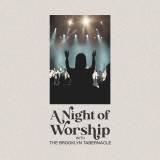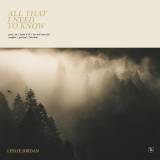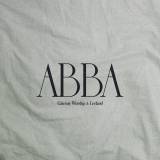LEARNING VERSUS KNOWING A SONG

One of the biggest
mistakes we make as worship musicians is to stop at learning. It’s one thing to
learn your part of a song. It’s another thing to know the same song.
When I KNOW a guitar solo
or riff of a song, I can play it smoothly and with feeling. If I’ve only just
LEARNED it, I might hit the right notes but fail to really turn it into music.
If I've stopped at
just learning the tenor part of a song, I think more about how
I sing it than worshiping God through the harmony and the lyrics. But if
I knowit, I don't have to think about the mechanics of it. It just
rolls out.
Learning a piece of music
simply gives you the ability to play it. When you make the extra investment
to know it, to internalize it, that gives you the ability to
shape the notes and rhythms and chords into music. You can play it with your
mind free to worship, and lead others in worship.
Fixing the Mistake
Take one personal
practice session and ‘learn’ the song. Then give it a rest. Spend another
practice session getting to know it – moving it from conscious
compentence to unconconscious competance. That
doesn't mean you can play it in your sleep--well, actually almost. You want it
to become second nature.
For some, the move to
conscious competence to unconsious competence is easy. For others it's a lot of
work. It just depends on how you learn and process music.
Over-Fixing the Mistake
Realistically, can you do
this with every song? No, especially if your team performs specials and new
songs often. In that case, you’ll want to figure out the where
the diminishing return occurs.
The “law of diminishing
return” in music preparation looks like this:
Let’s say a perfect
execution of a song is a “10” – right notes, in the pocket, with feeling--just
spot-on perfect. At the other end of the scale is a first-time, mangled-up,
sight-read mess. That’s a “1.”
Let’s say you need to
learn a song for Sunday. If you practiced it for 5 hours, you might be able to
make it a 9 or 10, that is, nearly perfect. But you could likely practice it
for 90 minutes and still play it at a 7 or 8–i.e., really well.
Is the extra 3½ hours to
play it a notch or two higher really worth it? It might be. But let me argue
that often, it probably isn't.
That’s what you need to
decide when it comes to learning songs.
If it’s a song that will
be in your rotation each month for the next year or two? Or maybe this is going
to be recorded for a worship album or a special service that requires
flawlessness? Then yes, invest the time.
But if it’s a on-off,
“sermon tie-in” song that will likely never be repeated, put the time in it to
“knowing it” well enough without over-investing yourself.
A few practical steps
Create a practice
schedule for yourself, both before and after rehearsal. Commit to it in the
same way you would commit to a team rehearsal.
Be realistic with the
song load you need to learn. Be intentional about what you invest heavily in
and what you don’t.
·
Resource: THE FIVE RULES OF FLOW IN WORSHIP
LEARNING VERSUS KNOWING A SONG
 Reviewed by Admin
on
3:30:00 PM
Rating:
Reviewed by Admin
on
3:30:00 PM
Rating:
 Reviewed by Admin
on
3:30:00 PM
Rating:
Reviewed by Admin
on
3:30:00 PM
Rating:
















Post a Comment